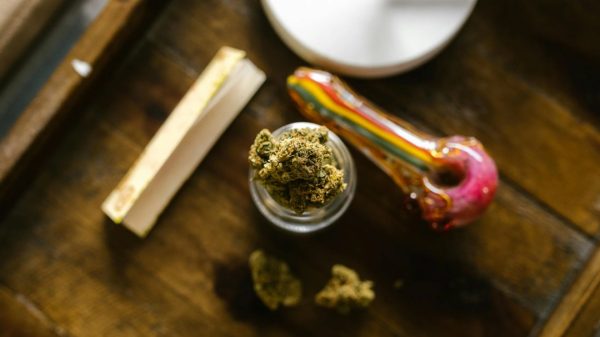It’s essential to distinguish between alcohol intolerance and a true alcohol allergy, as the two require different treatments. Alcohol intolerance is the most common alcohol metabolism disorder, followed by an actual alcohol allergy. While both conditions can produce adverse effects after drinking, they are caused by different mechanisms.
This article will take a closer look at the difference between these two conditions and explore their symptoms and the treatments available. Continue reading to learn more.
What is alcohol intolerance?
Alcohol intolerance is a condition in which a person experiences adverse reactions after consuming alcohol. These reactions can range from mild to severe, including flushing, headache, nausea, vomiting, and diarrhea. In some cases, alcohol intolerance can also lead to hives, swelling, and difficulty breathing. The severity of these reactions depends on the amount of alcohol consumed and the individual’s tolerance level.
People with alcohol intolerance typically have a genetic predisposition for the condition. However, it can also be caused by certain medications or health conditions. Treatment for alcohol intolerance typically involves avoiding alcohol or taking medication to reduce the severity of symptoms. In severe cases, hospitalization may be necessary.
What is alcohol true allergy?
Alcohol true allergy is a rare but severe reaction to alcohol that can occur even if you only drink a small amount. The symptoms, which can include hives, difficulty breathing, and low blood pressure, can happen within minutes of alcohol exposure and can be life-threatening. While the exact cause of alcohol true allergy is unknown, it is thought to be related to a genetic predisposition.
Treatment for alcohol true allergy generally involves avoidance of alcohol and the use of emergency medications to treat symptoms. In severe cases, hospitalization may be necessary. If you think you may have an alcohol true allergy, it is crucial to see a doctor for diagnosis and treatment.
Symptoms of alcohol intolerance
Symptoms of alcohol intolerance can vary from person to person, ranging from mild to severe. Some common symptoms include nausea, vomiting, abdominal pain, and flushing. More severe reactions can include difficulty breathing, low blood pressure, and collapse. A deficiency often causes alcohol intolerance in the enzyme needed to break down alcohol; certain medications, such as acetaminophen, can also cause it.
People with alcohol intolerance should avoid drinking alcohol or take measures to prevent reactions, such as avoiding triggers or taking medication before drinking.
Symptoms of an alcohol allergy
An alcohol allergy is a reaction that occurs after drinking alcohol or coming into contact with products that contain alcohol. Symptoms can range from mild to severe and, in some cases, can be life-threatening. Common symptoms of an alcohol allergy include skin flushing, hives, and difficulty breathing. More severe reactions can cause swelling of the throat and airway, low blood pressure, and shock. In rare cases, anaphylaxis can be a potentially fatal reaction.
If you think you may have an alcohol allergy, it is crucial to seek medical help as soon as possible. Your doctor can perform tests to confirm the allergy and guide you on how to avoid future reactions.
Treatments for alcohol intolerance and true allergy
Various treatments are available for people who suffer from alcohol intolerance or true allergy. For those with intolerance, avoiding alcohol is the best course of action. However, some medications can help to reduce the symptoms. Antihistamines often relieve the itching, swelling, and hives associated with intolerance.
For people with a true allergy to alcohol, avoidance is also essential. However, emergency treatment may be necessary if a reaction occurs. Epinephrine (or an EpiPen) can help control the symptoms of anaphylaxis, including difficulty breathing and throat swelling. If you think you may have an intolerance or allergy to alcohol, it is essential to talk to your doctor so that you can receive the appropriate treatment.
What is the difference between alcohol intolerance an alcohol allergy?
The primary difference between alcohol intolerance an alcohol allergy is the cause of the reaction. A deficiency of the enzyme alcohol dehydrogenase causes alcohol intolerance. This enzyme helps to break down alcohol and, if it is lacking, can cause symptoms such as nausea and flushing. Alcohol allergies are caused by an immune system reaction that occurs when alcohol is ingested or comes into contact with the skin. Symptoms of alcohol allergy include hives, difficulty breathing, and swelling.
Both alcohol intolerance and alcohol allergy can be severe conditions. It is crucial to speak to your doctor if you think you may have either one to receive the appropriate treatment. With proper care, both conditions can be managed effectively.
In conclusion
Alcohol intolerance and alcohol allergy are two distinct conditions that can be serious. Alcohol intolerance is caused by a deficiency in the enzyme alcohol dehydrogenase and can cause symptoms such as nausea and flushing. Alcohol allergies are caused by an immune system reaction to alcohol and can cause hives, difficulty breathing, or swelling.
Treatment for both conditions involves avoiding alcohol, although medications may help with alcohol intolerance. If you think you may have either alcohol intolerance or alcohol allergy, you must speak to your doctor for diagnosis and treatment.




































































